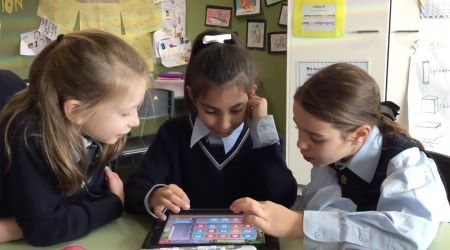
With reports showing a steady decline in students’ literacy outcomes, educators and policymakers are asking: ‘what went wrong?’
According to a new report released by the Australian Research Alliance for Children and Youth (ARACY), only 82% of year 10 students reached the international baseline level for reading in 2015, compared with 86% of students in 2006.
As with any discipline, sparking students’ interest and engagement is key to improving their outcomes, and it is this approach that LiteracyPlanet has taken with Word Mania, an award-winning online English literacy program.
This week, Australian students from Year 1-9 were invited to partake in the global competition and put their spelling skills to the test. Word Mania challenges students to think outside the box and develop crucial literacy skills while improving their vocabulary and word knowledge.
As an added incentive to get involved, LiteracyPlanet is offering $350,000 in prizes for schools that enter the competition.
Lauren Johnson, an English teacher at Word Mania champions Thomas Hassall Anglican College, said it is “refreshing to see students who are usually disengaged become enthused about a program that helps with their reading and writing. "
LiteracyPlanet CEO, Adam McArthur, said that overall, he has a positive outlook about the literacy outcomes of Australian youth.
“At LiteracyPlanet we’re seeing encouraging results from our schools as classrooms evolve with new teaching styles and methods,” McArthur told The Educator.
“One key element we’ve identified is the importance of using data to understand areas of difficulties, to help students with their individual needs and identify different ways to engage them.”
McArthur said the company is receiving a lot of feedback from teachers about a widening range of student abilities within a class, particularly in earlier years, and how this is proving to be a challenge.
“This points to the importance of using data and adapting traditional teaching methods to deal with this challenge,” he said.
“We have a lot of very passionate teachers out there, and with a little bit of help they will be well placed to deal with these new challenges.”
McArthur said his organisation’s literacy initiative is a great example of how technology can achieve powerful outcomes if you engage with students and teachers in the right way.
“Word Mania is easy for teachers to use and fun for students to play, which is what makes it so effective. We hear so many stories at LiteracyPlanet of students below their required standard, who have used Word Mania and built confidence in their literacy skills,” he said.
McArthur said that students are often surprised with the length and difficulty of words they’re able to build, adding Word Mania is also a great way to engage advanced learners as it pushes them to build longer, more difficult words and extend their vocabulary.
“We provide teachers with a series of reports as part of Word Mania, and this data helps them understand how their students are improving during the competition,” he said.
“Seeing students have fun and improve during Word Mania is a real highlight for the LiteracyPlanet team, and we’re looking forward to another great year.”
Students have until 9 August 2019 to sharpen their skills as part of the Practice Round, before the official Competition Rounds from 12 August 2019 to 23 August 2019.


